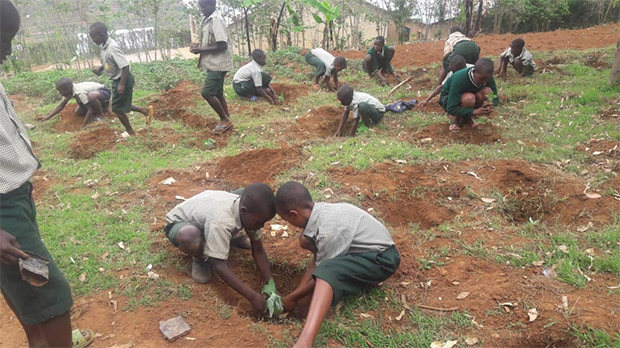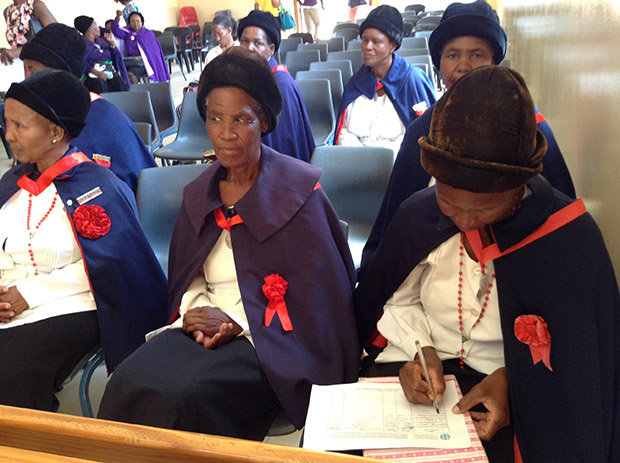By Guest Contributor Allen Ottaro, Executive Director at Catholic Youth Network for Environmental Sustainability in Africa (CYNESA)
This year’s World Environment Day, whose theme is “Time for Nature,” comes against the backdrop of the dramatic impact of the COVID-19 pandemic, and how it has transformed life as we were accustomed to. Perhaps it is also time to examine not just the symptoms, but the causes and interconnectedness of the multiple crises we are living through.
Professor Wangari Maathai, the 2004 Nobel Peace Laureate, and Founder of the Green Belt Movement, understood the root causes of our ecological crisis in a profound way. In the late 1970s, Maathai, through her interactions with rural women in the central regions of Kenya, noticed changes in the quality of the natural environment. Their streams were drying up, their food supply was less secure, and they had to walk further and further to get firewood for fuel and fencing.
This was the inspiration behind the formation of the Green Belt Movement, which encouraged the women to work together to grow seedlings and plant trees to bind the soil, store rainwater, provide food and firewood, and receive a small monetary sum for their work. In the initial stages, they discovered that beyond the challenges of environmental degradation, there were deeper issues of “disempowerment, disenfranchisement, and a loss of traditional values that had previously enabled communities to protect their environment”.
Kenya’s political situation in the 1980s and 1990s was one of fear and suppression of basic freedoms such as freedom of association and freedom of assembly. Members of the Green Belt Movement soon found themselves needing to apply for permits, just to allow them to gather women for trainings on tree planting and how to establish tree seedlings. Often they would be denied. They realized that without accountability from leadership and greater democratic space, it would be an uphill task to bring forth any meaningful change in the political, economic and environmental circumstances.
In a 2006 speech delivered in Gwangju, South Korea, Maathai illustrated how conflicts and failure of good governance contribute to environmental degradation:
“Sustainable management of the resources is only possible if we practice good governance, which calls for respect for the rule of law, respect for human rights, a willingness to give space and a voice to the weak and the more vulnerable in our societies; that we respect the voice of the minority, even while accepting the decision of the majority, and respect diversity.”
The United Nations Environment Program (UNEP), has also documented the impact of conflicts on ecosystems and conservation efforts. The First State of Environment and Outlook Report 2018, also highlights how the civil war in South Sudan has impacted the environment: “The state of ongoing strife in South Sudan is the major impediment to good governance that would ensure the productive use of its natural resources and the protection of its environmental assets.” In her Nobel lecture after receiving the 2004 Nobel Peace Prize, Maathai demonstrated the links between environmental degradation and socio-economic inequalities. She also explained the importance of cultural heritage, and observed that because of “the destruction of these cultures and the introduction of new values, local biodiversity is no longer valued or protected and as a result, it is quickly degraded and disappears”.
The COVID-19 crisis, the climate crisis and the ugly face of racism we are seeing in recent events in the United States, must be a wakeup call for humanity, to the “disempowerment, disenfranchisement and loss of values”, that Maathai and the Green Belt Movement call attention to. We cannot therefore address the pandemic without a comprehensive ecological framework that puts the needs of the most vulnerable at the forefront. This principle must apply to the issue of climate financing, without COVID-19 becoming an excuse to not deliver on climate financing pledges, as countries roll out stimulus plans. This is the only way to ensure we have a just recovery, and to demonstrate that we are, in fact, learning the lessons of these multiple crises. It is time for nature-but it is also time for ecological conversion.


